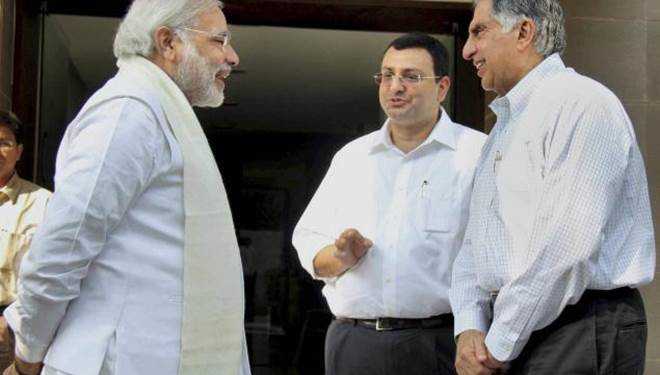Ratan Tata, the ace industrialist and former chairman of the Tata Group has shown confidence in Prime Minister Modi, in an interview with columnist and author Suhel Seth. On being questioned about the Prime Minister, Tata said that Modi is capable of delivering the ‘New India’ that he has promised to the people of the country. Sharing an anecdote, Tata said that while Modi was CM of Gujarat, he delivered the promises he made. When Tata wanted to move its Nano operations from West Bengal after the Singur incident, Modi publicly welcomed the Tata group to set up the factory in Gujarat. The group asked for the land and Modi said that he will deliver it within 3 days. The group did not expect such a fast response from a politician. But Ratan Tata was surprised when Modi called him on the morning of the third day and told him that the land is available. According to Tata, this was a new thing in India.
PM Modi was never embarrassed in being called a business-friendly leader despite being repeatedly criticized by the opposition for meeting business people. He considers strong government and business relations as good for economic growth and he doesn’t consider it wrong to meet business people publicly. As long as there is no backdoor meeting to finalize deals, a cordial relationship between politicians and industrialists is necessary. Since the Modi government came to power at the center, the industrialist who believed in a rule-based economy where the contracts are offered, competitiveness of bids and not contracts being given based on personal relations with politicians, is very happy. Sunil Mittal of Airtel said that “He is trying to grow the economy, grow markets, put rules and regulations. In fact, a rule-based economy is much better than a discretionary kind of economy.”
On the other hand some of the industrialists like the chairman of Videocon group Venugopal Dhoot, whose company is facing insolvency proceedings, accused Prime Minister Modi for the losses of the company. These were the businessmen who were used to the ‘crony capitalism’ of the UPA era, where an industrialist used to get licenses if they were close to the party or some minister. Taxpayers’ money was being wasted by people like Vijay Mallya and Nirav Modi on their luxurious lifestyles. The insolvency and bankruptcy law brought by the Modi government to solve the NPA crisis did not go down well with some industrialists who do not like to play by the rules. It is important to understand that the romances of ‘Fabian socialism’ where profit used to be bad, are over. The Nehruvian socialist era where businesspersons and profits were seen with suspicion is no longer relevant.
The modern Indian economy moved away from ‘Nehruvian socialism’ in the 1990s and is now slowly freeing itself from the ‘stigmatized capitalism’ of the post liberalization era. The Modi government is trying to make India a rule-based capitalist economy where profit will not be a bad word but the company will be punished if it is not able to post a profit and lives off the loans of public sector banks. In a recent gethering in Lucknow the Prime Minister said, “We are not scared of meeting industrialists because our intent is honest”. He further added, “Politicians in power in the past would loathe being seen with industrialists in public, but had no qualm about striking deals behind closed doors.” He emphasized the fact that industrialists play important roles in the development of the country.
The government should not demonize industrialists, because they are important pillars of the economy. If something was wrong in the interactions with industrialists, it was the closed-door meetings to make deals, as the Congress party leaders used to do, which resulted in many scams like Coalgate, CWG, Adarsh, 2G spectrum. Rahul Gandhi demonizes the industrialists in public and his state leaders in Karnataka and Punjab welcome them with a red carpet to make investments in the state.

























